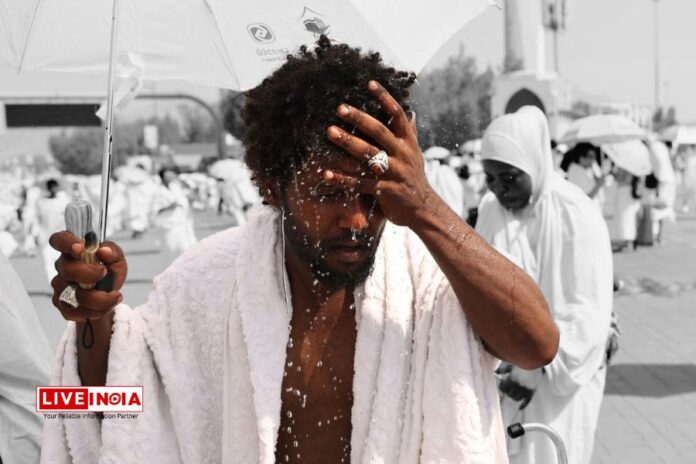Six people lost their lives from heatstroke during the Haj pilgrimage to Mecca, CNN reported on Sunday. The Jordanian foreign ministry confirmed Saturday that all six deceased were Jordanians and that the country was coordinating with Saudi officials in Jeddah on burial procedures and the possible return of their bodies to Jordan.
The news of the fatalities comes as pilgrims gathered atop Mount Arafat on Saturday, commemorating the pilgrimage’s main event. The Saudi General Authority for Statistics reported that over 1.8 million pilgrims will perform Haj this year.
The Haj is one of the world’s largest religious gatherings and the major annual event in Saudi Arabia. It is considered one of the five pillars of Islam. This year, Saudi Arabia is experiencing excessive heat throughout the five-day pilgrimage, with temperatures hitting 48 degrees Celsius in Mecca.
According to the state news agency SPA, Haj officials are advising pilgrims to bring umbrellas and stay hydrated under extreme weather conditions. The Saudi army has also dispatched over 1,600 soldiers, including medical units specialized for heatstroke and 30 rapid response teams, according to CNN. Another 5,000 health and first aid volunteers are taking part.
Jordan had said that its official delegation this year consisted of over 4,000 pilgrims. However, the foreign ministry confirmed that the six who died were not members of the “official delegation,” which meant they lacked proper Haj licenses to conduct the journey, according to CNN.
The pilgrimage consists of various elaborate rites, such as wearing unique clothing that represents human equality and unity before God, a round, counter-clockwise march around the Kaaba, and the symbolic stoning of wickedness. People who have completed the pilgrimage might add the words al-Haj or hajji (pilgrim) to their names.
Saudi Arabia has committed billions of dollars over the last decade to improve transportation, technology, and accommodations for Haj pilgrims, which are a major source of revenue for the world’s largest oil producer.



